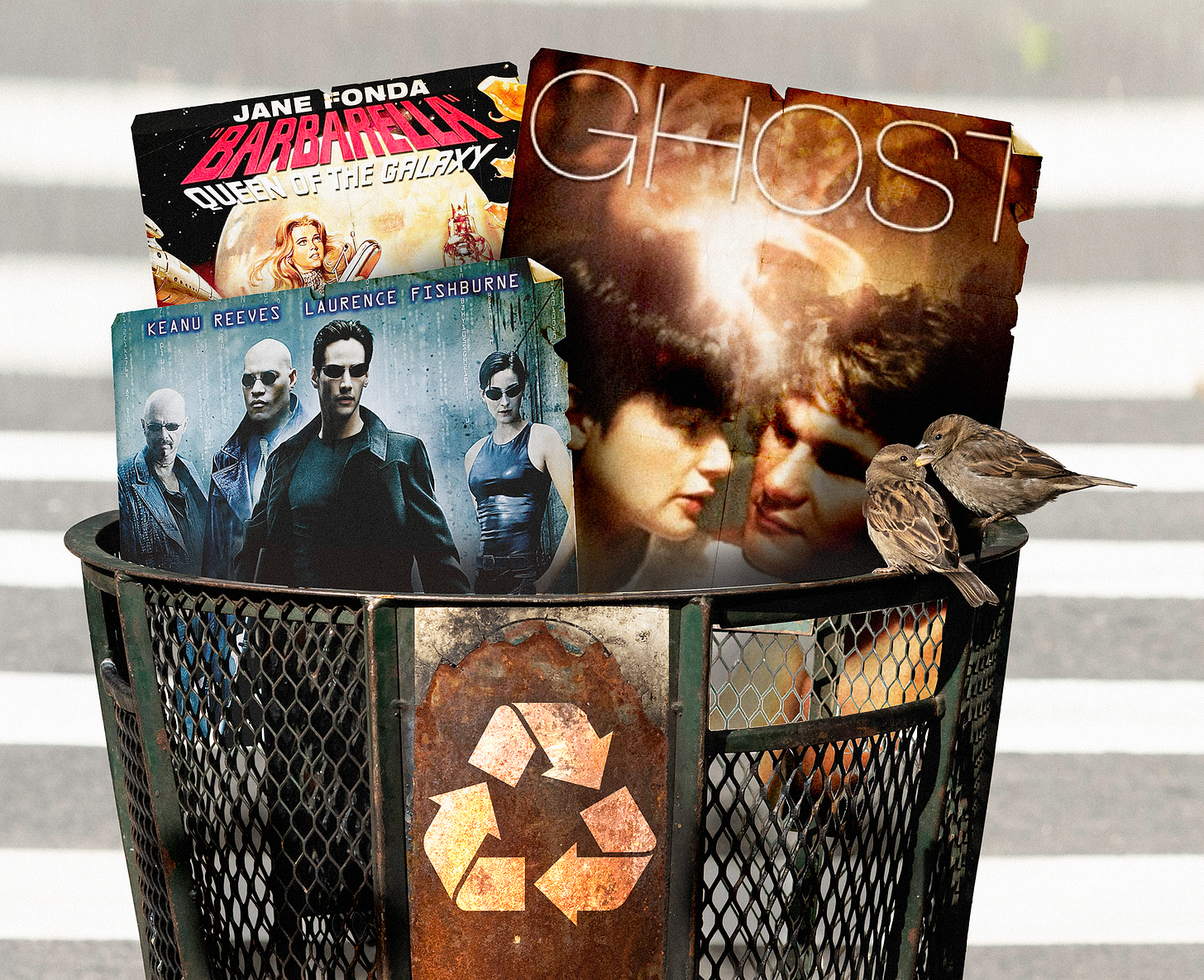The 'Never-Ending' Reboot Nightmare: 'This Isn't About Being Lazy'
Agents, execs and producers on the the rash of Gen X movie remakes tearing an industry apart

Ever since Channing Tatum chose to share the news in late 2022 in a Vanity Fair profile that his production company had acquired the rights to the 1990 blockbuster Ghost — which he revealed while seated at a pottery wheel molding clay, no less — fans and even some of the film’s original cast have wondered what he meant when he said wants “to do something different” with the iconic film. Ghost, after all, grossed $505 million (that’s $1.2 billion today) and won two Oscars, including best screenplay. This May, Demi Moore expressed cautious optimism about the project while at the same time saying, “There are some films that often are better left not touched.”
Tatum’s Ghost, currently in development at Paramount, will in fact contain some updates. I’ve learned that Jamie Linden (Money Monster, Ten Years), is working on a script incorporating a contemporary exploration of mental health, anxiety and depression, among other themes. I’m also told that Tatum’s longtime producing partner, Reid Carolin, who directed Tatum in 2022’s Dog, is helping develop the project. From a studio’s perspective, Tatum possibly reprising the role of Sam Wheat — the murdered banker played by the late Patrick Swayze who returns from beyond the grave — is a winning formula (not to mention an apt metaphor for Hollywood reboots themselves).
As an executive at a legacy studio put it, “That’s one plus one equals three.”
It’s that sort of math that has nervous studio execs cautiously excited — and creatives shuddering and gagging — as Hollywood enters an unprecedented era of reboot, reuse, recycle. This year’s announcements of coming re-dos so far include 1989’s War of the Roses (grossed $220 million in 2024 dollars); 1987’s Outrageous Fortune ($145.7 million today); 1985’s Enemy Mine ($36.8 million today); and 1982’s An Officer and a Gentleman ($471.5 million today). As my colleague Sean McNulty noted in chronicling the news of these deals, “You’ve got Glen Powell, one of the hottest stars in town, remaking The Running Man and attached to a remake of Heaven Can Wait. You’ve got Sydney Sweeney with Barbarella at Sony. Jake Gyllenhaal just redid Road House. These are all films that are not of this generation.” (See the chart below for more.)
But inside the industry there’s a far more complex — and at times, conflicting — view of this trend. For this story, I talked to WME’s Robert Newman, CAA’s Dan Rabinow and Imagine’s Justin Wilkes, among others, to explain what is happening in the market and why. Other execs, managers, agents, producers and creatives expressed frustration with an industry not just reliant on IP — its bête noir for the past 20 years — but now, my god, repurposed IP. Using Lionsgate’s Dirty Dancing as a case study, I also illustrate the real-world perils of attempting a reboot in 2024.
Still, answers to why Hollywood has found itself in this moment is not as simple or intuitive as one might think.


